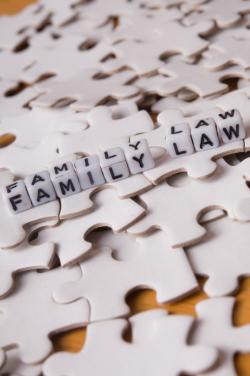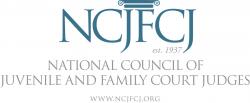 Survivors of domestic violence who have chosen to separate from their abusive spouse or partner can face many challenges as they navigate the family court system and its complexities. Throughout negotiations and proceedings, survivors maintain either direct contact with the abuser or contact through attorneys or advocates. The civil legal system can be overwhelming, as documents must be accounted for and filed, agreements must be drafted, and court hearings must be scheduled and attended. A survivor who has either chosen to represent herself in court (called “pro se” representation), or who was unable to obtain an attorney, faces the additional challenge of having to navigate the legal system alone, which includes having to understand legal terminology and procedures. If the abuser is represented by an attorney but the survivor is not, the survivor may feel intimidated or even frightened.
Survivors of domestic violence who have chosen to separate from their abusive spouse or partner can face many challenges as they navigate the family court system and its complexities. Throughout negotiations and proceedings, survivors maintain either direct contact with the abuser or contact through attorneys or advocates. The civil legal system can be overwhelming, as documents must be accounted for and filed, agreements must be drafted, and court hearings must be scheduled and attended. A survivor who has either chosen to represent herself in court (called “pro se” representation), or who was unable to obtain an attorney, faces the additional challenge of having to navigate the legal system alone, which includes having to understand legal terminology and procedures. If the abuser is represented by an attorney but the survivor is not, the survivor may feel intimidated or even frightened.
The following resources include summaries of divorce, custody, and related laws by state, guides and legal resource kits designed to help explain legal processes as well as the impact of custody decisions on children. Also included are websites of organizations that provide technical assistance to advocates and attorneys working with survivors of domestic violence on family law matters.
 American Bar Association Commission on Domestic & Sexual Violence
American Bar Association Commission on Domestic & Sexual Violence
The mission of the ABA Commission on Domestic & Sexual Violence, founded in 1994, is to increase access to justice for victims of domestic violence, sexual assault and stalking by mobilizing the legal profession. The Commission addresses the acute need to increase the number of well-trained and supported attorneys providing representation to victims by offering creative training opportunities for lawyers, law students and other legal advocates.
 Resource Center on Domestic Violence: Child Protection and Custody
Resource Center on Domestic Violence: Child Protection and Custody
The Resource Center on Domestic Violence: Child Protection and Custody, a project of the National Council of Juvenile and Family Court Judges, provides training and technical assistance to professionals seeking to improve outcomes on child protection cases that involve domestic violence, while engaging in policy reform in those areas. The NCJFCJ provided technical assistance related to the Greenbook Initiative, a federally funded project that saw child welfare workers, domestic violence advocates, and family court judges change their approach to domestic violence to better help battered women and their children achieve safety.
National Child Custody Project
The National Child Custody Project, a project of the Battered Women’s Justice Project, works to promote domestic violence-informed decision-making in child custody disputes between parents. The National Child Custody Project provides the following training and technical assistance:
- Policy and curriculum development
- Analysis of child custody systems and practices
- Identification of barriers to informed decision-making in civil courts
- Guidance to improve practice in child custody cases









